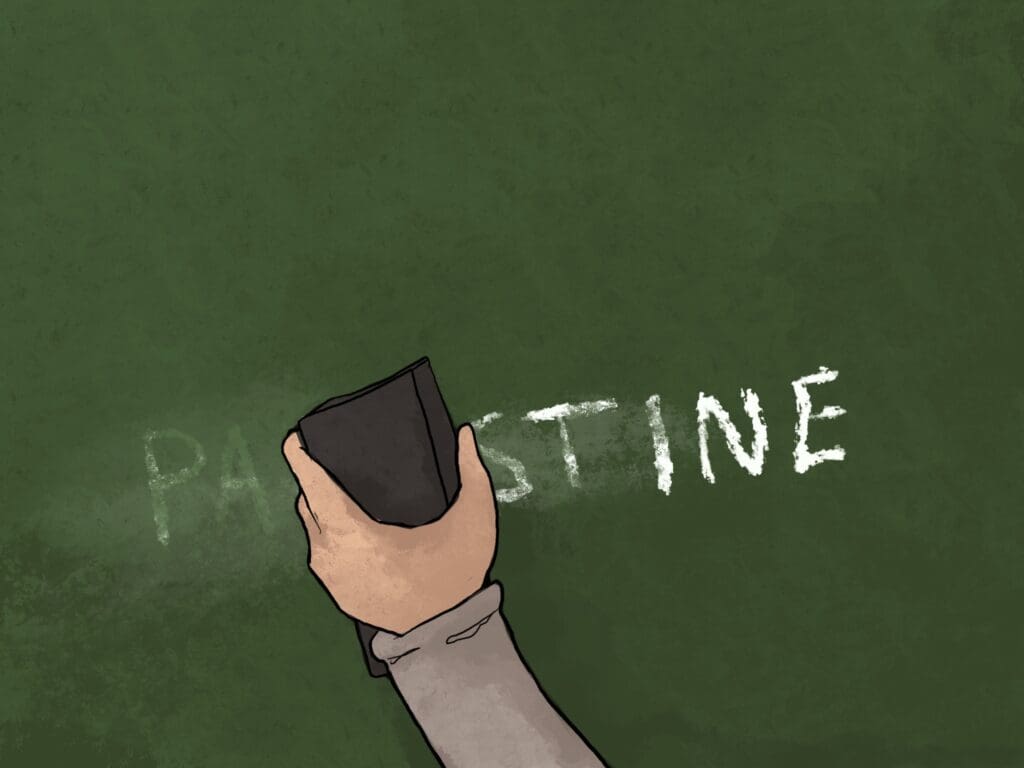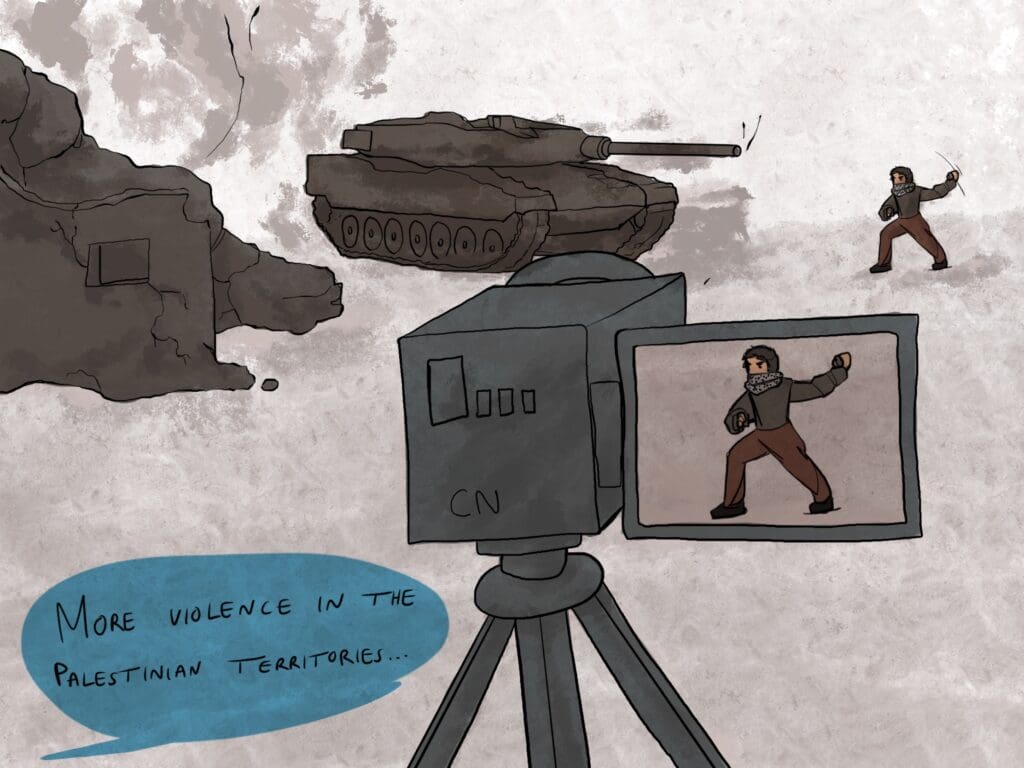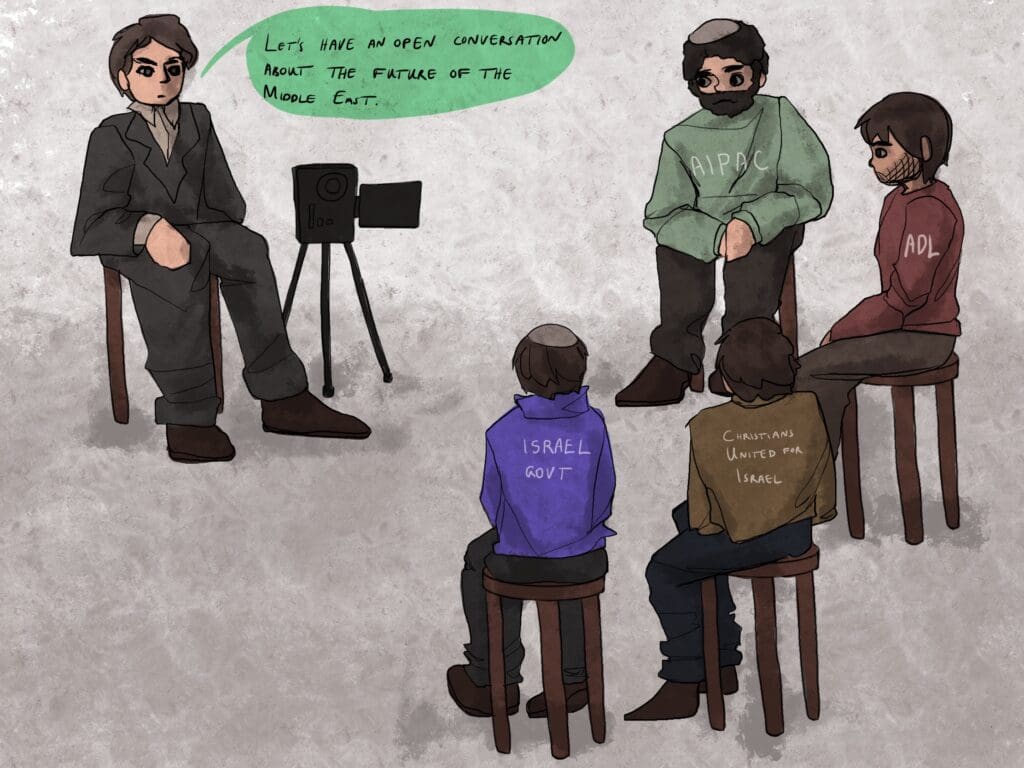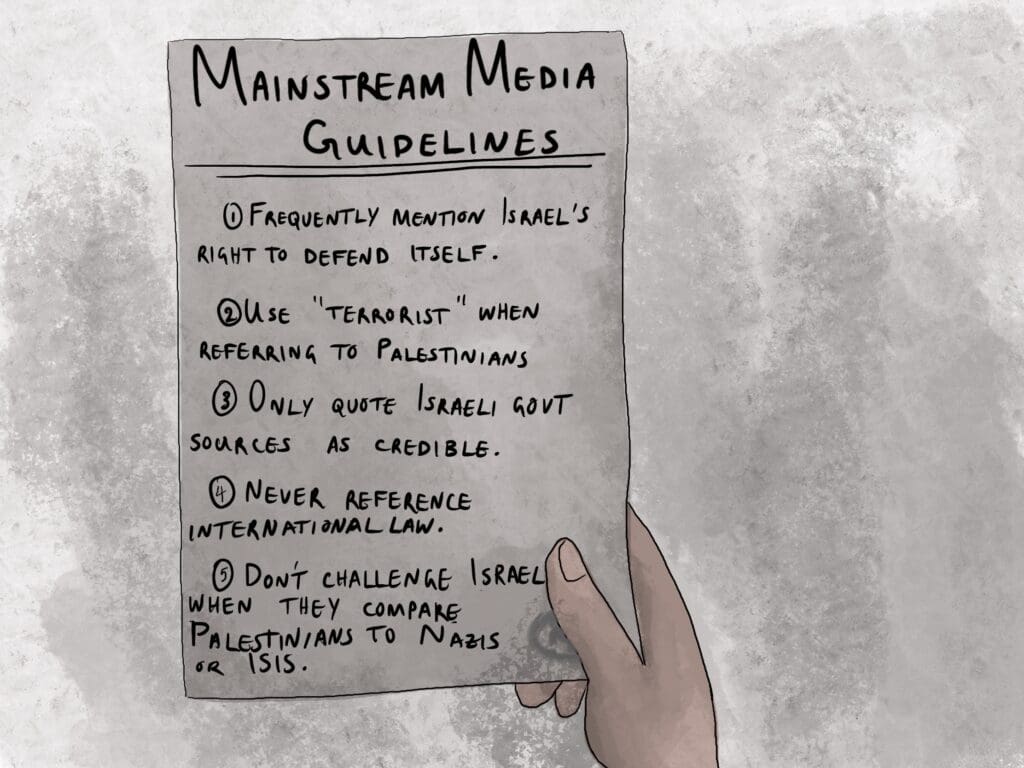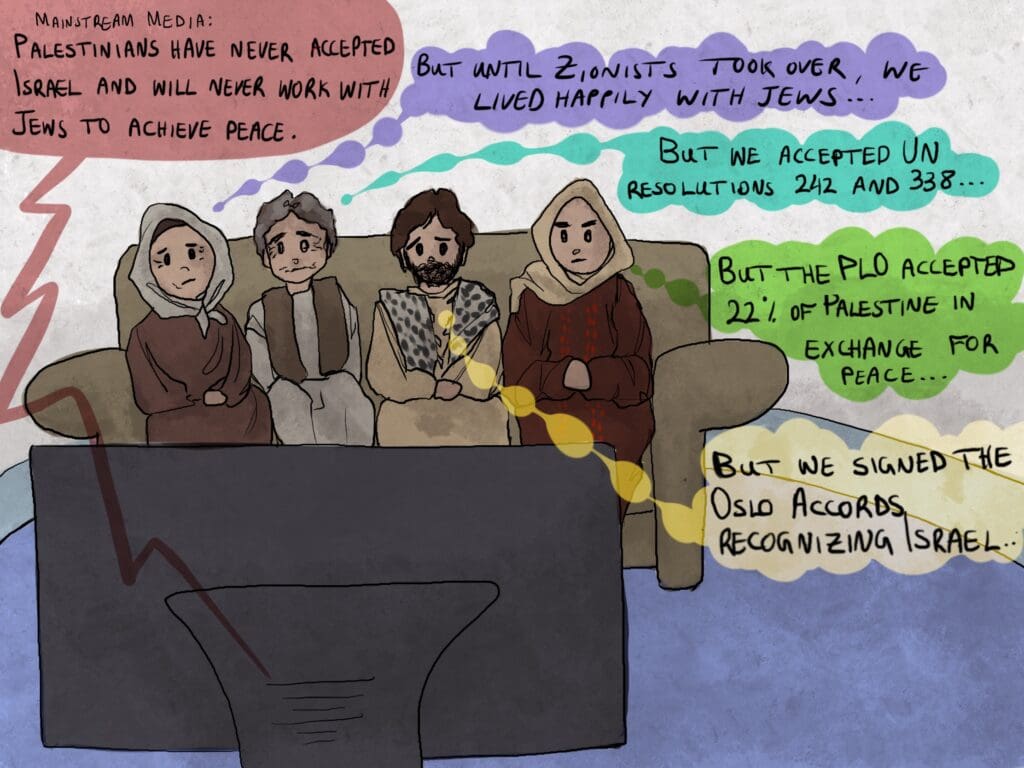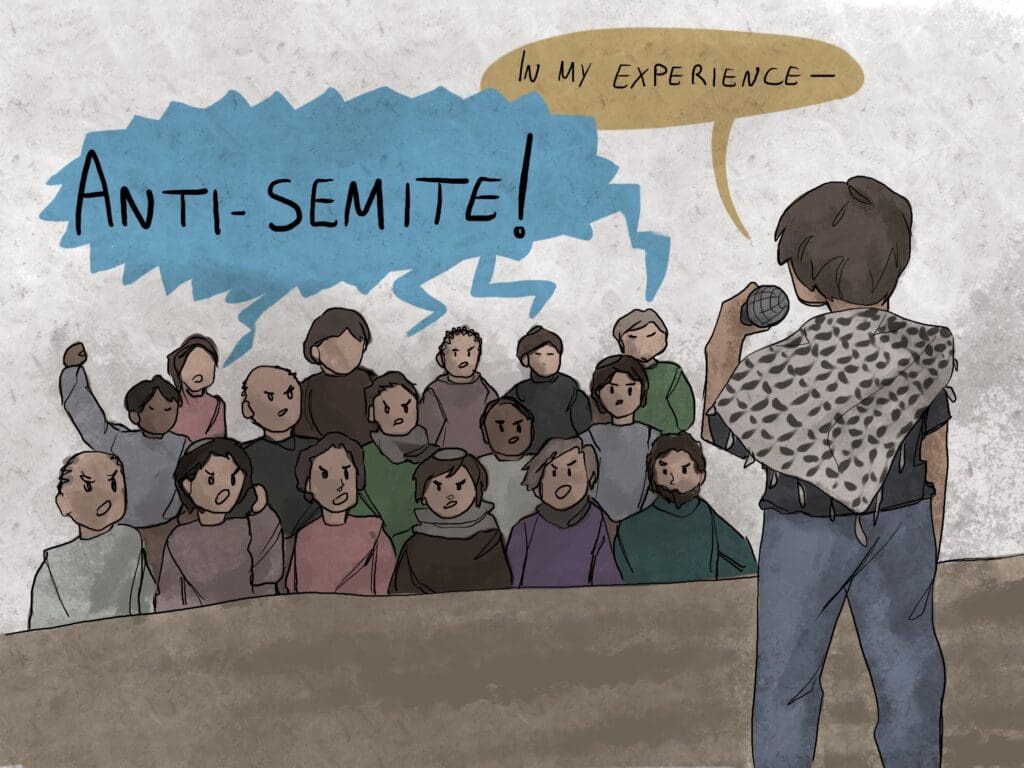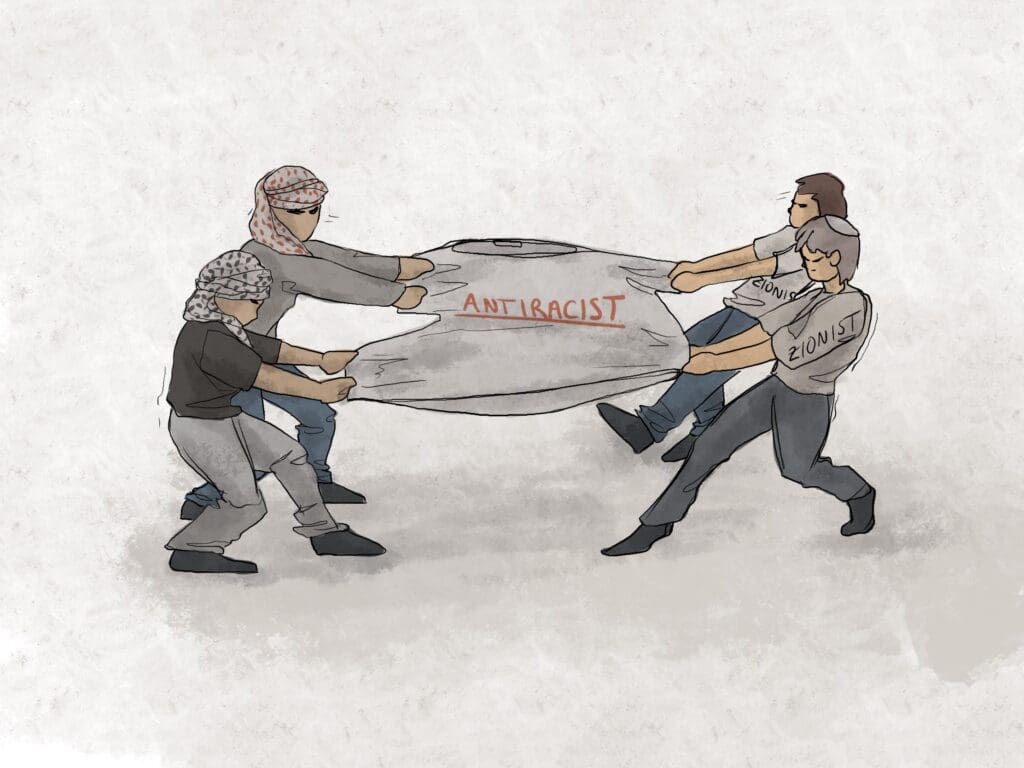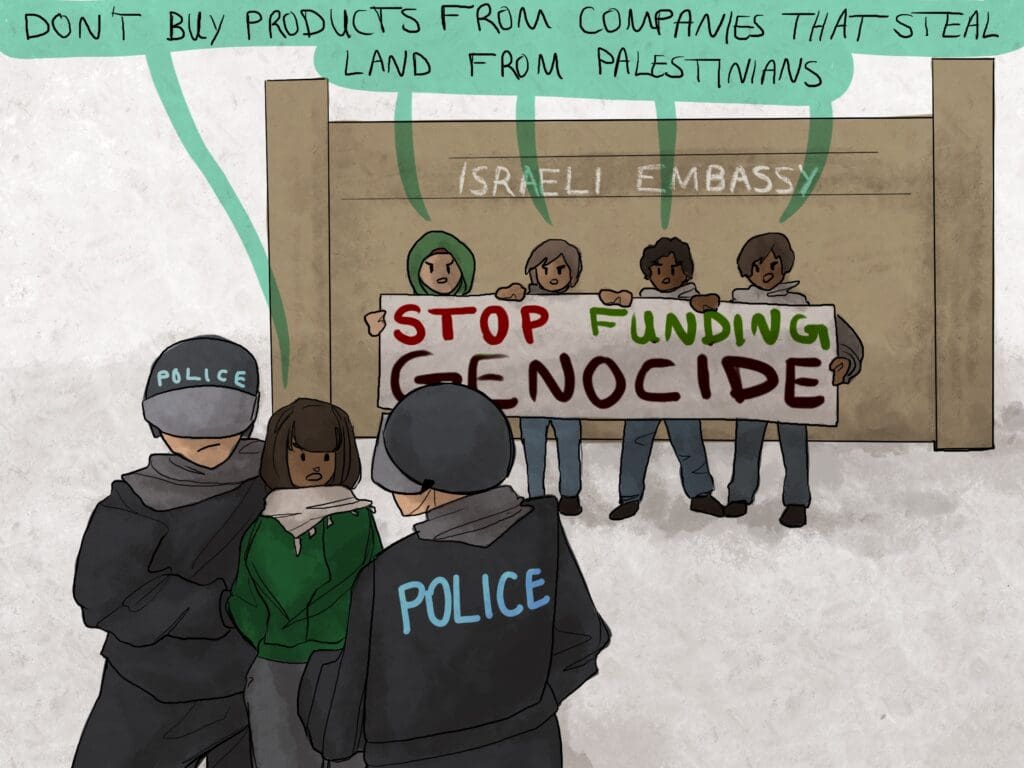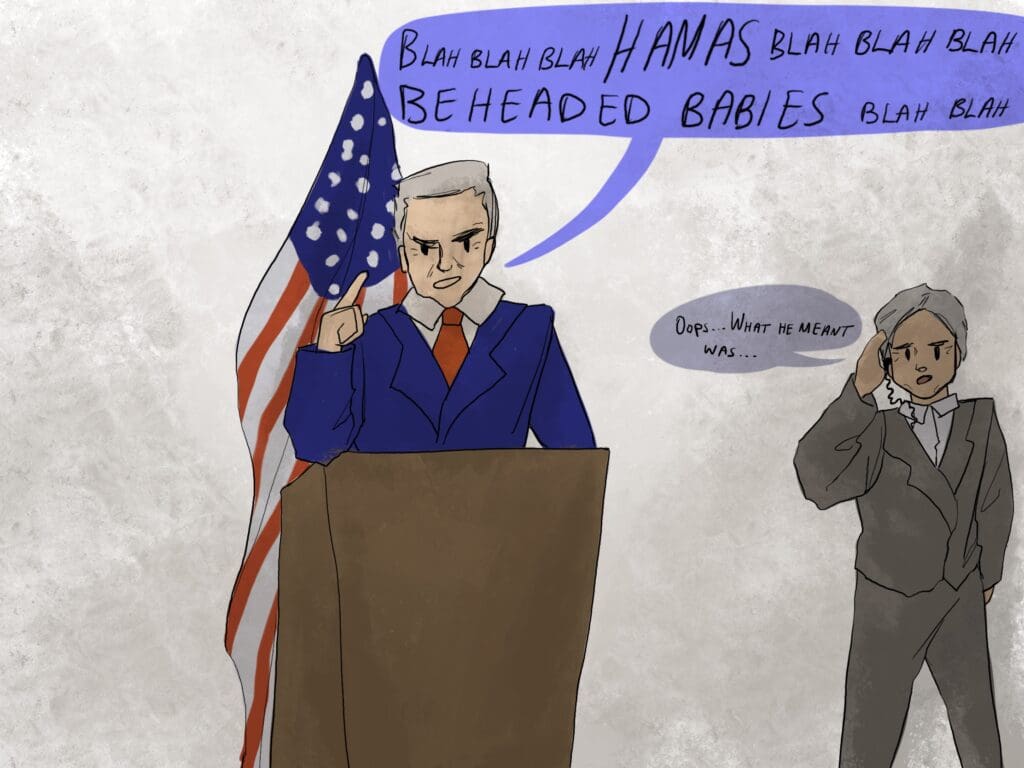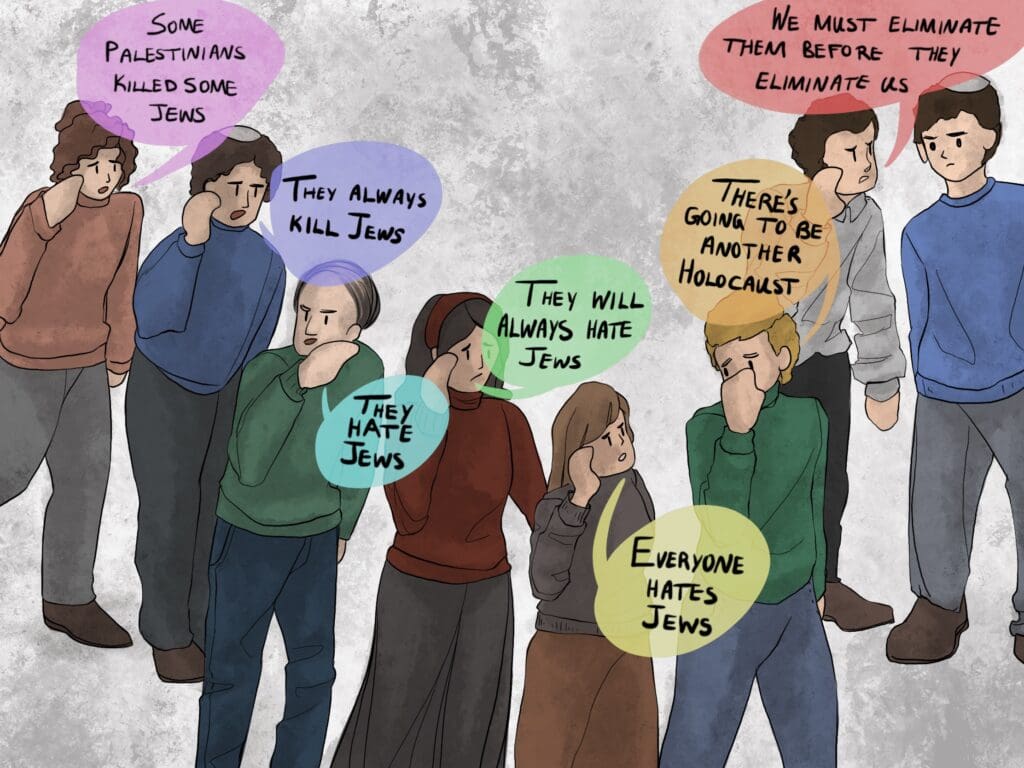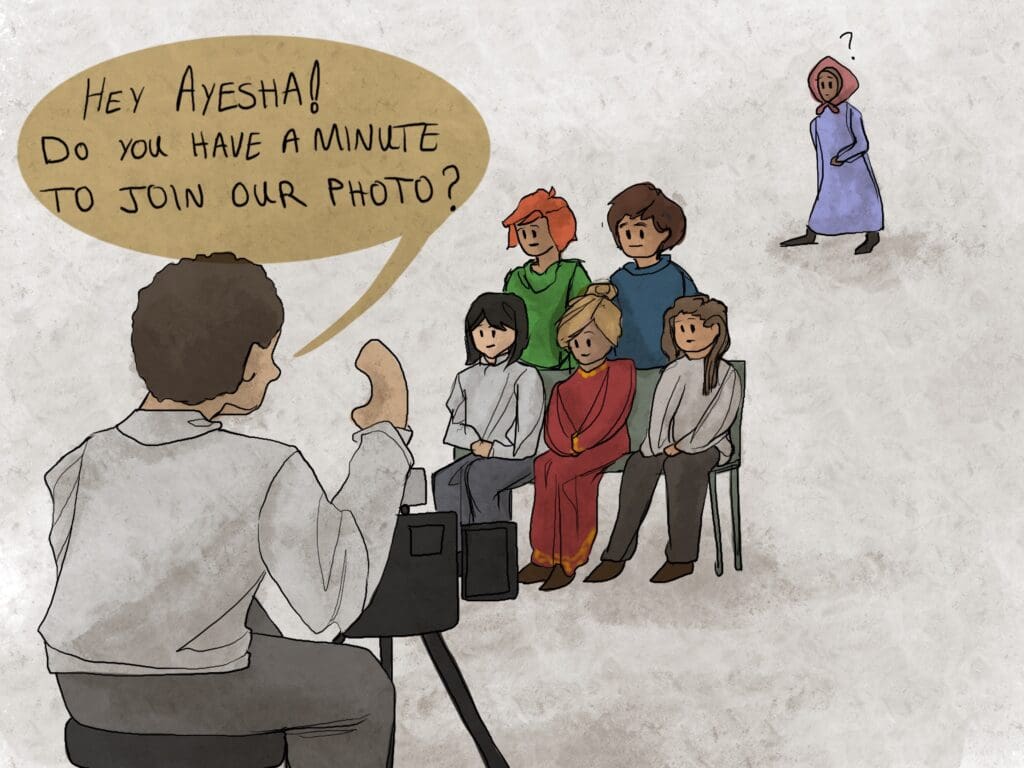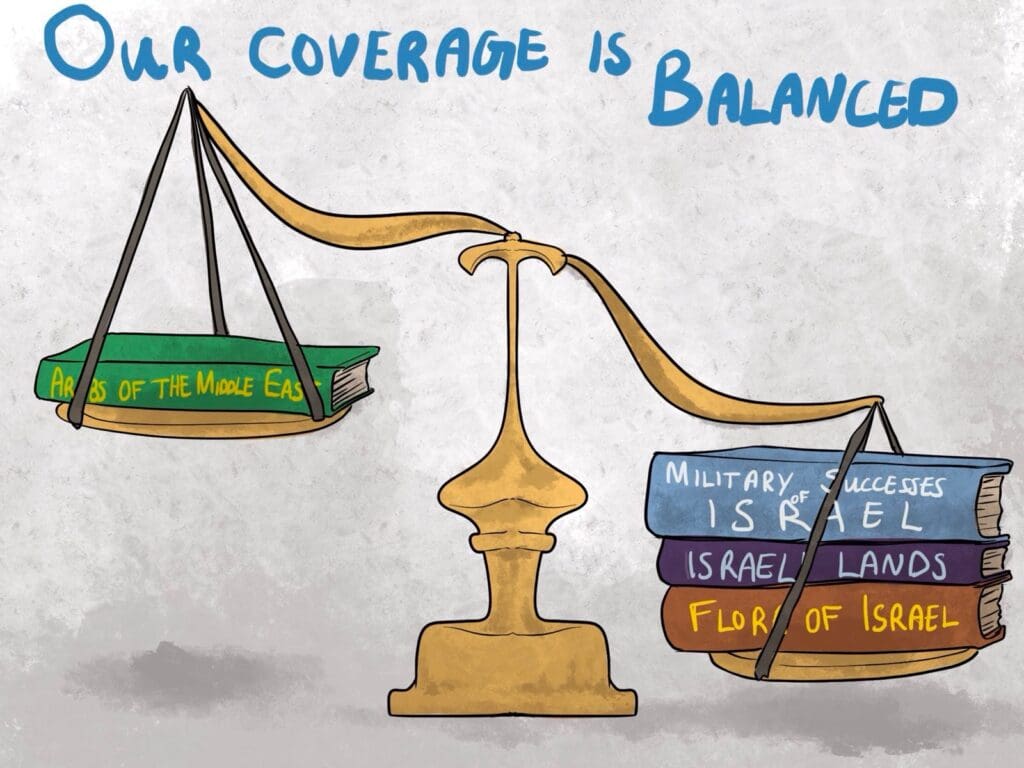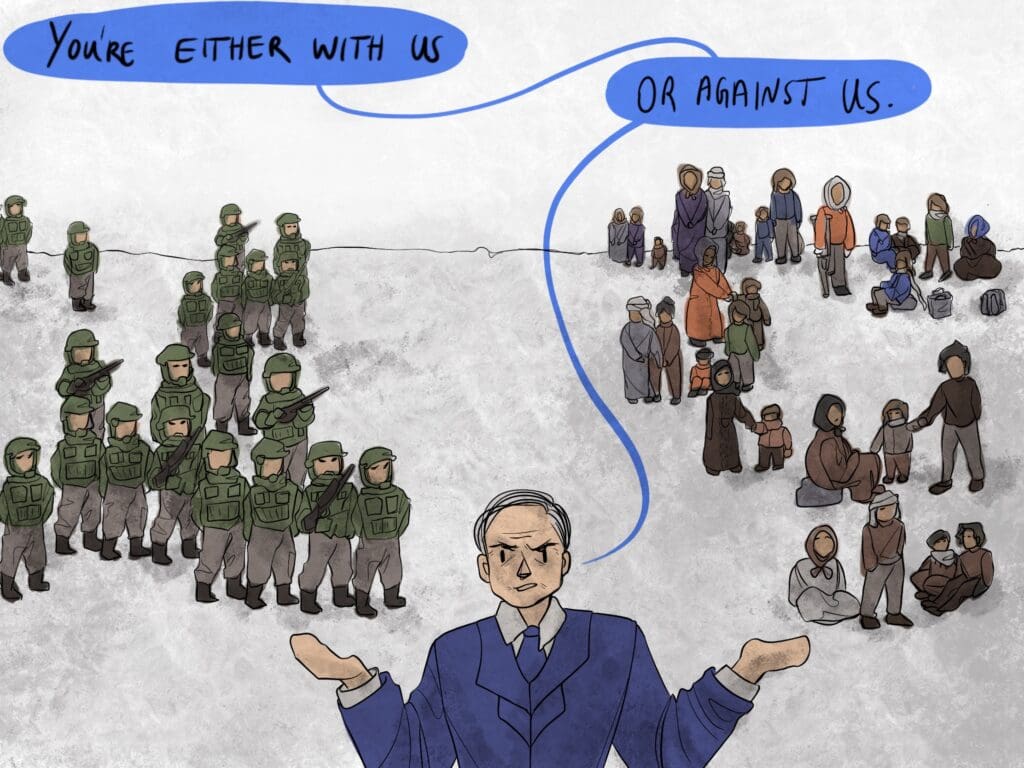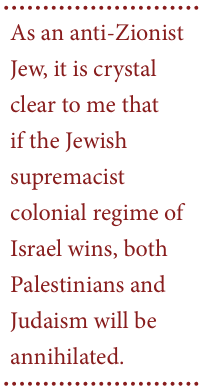On May 30, 2024, The Forward contacted me in response to a tweet of mine criticizing an article they published. They asked me to write an OpEd, and after checking with some friends in the Palestinian solidarity movement, I decided to accept the offer as long as they didn’t censor my ideas. Over the next several months, I wrote three OpEds, none of which were published. The first got stale when The Forward didn’t respond in a timely way. The second was completely rewritten and my politics misrepresented, so I refused to agree to their edits. I sent a third one with a new hook, but after agreeing to publish (and pay for it), The Forward stopped replying to my emails. They also didn’t respond to my invoice for payment. For what its worth, I’m sharing one of the OpEds here.
What are we keeping Jewish students safe from?
As the new school year approaches, I am being bombarded with emails and texts about the imperative to keep Jewish students safe in the new politicized atmosphere. But safe from what? One text message noted that the BDS movement has been training campus activists and that anti-genocide encampments will be back.
There are actual right-wing racists, including white supremacists and Christian nationalists, who are being emboldened by MAGA rhetoric, but the self-appointed antisemitism watchdogs don’t mention those real threats at all. They focus on students who believe in the humanity of Palestinans and support their right to be equal and free.
I wonder how Jewish outlooks might change if they understood their fate not as aligned only with one another against the world, but as inextricably linked with the people of color, including Palestinians, who constitute the global majority. What if Jews believed that that Jewish wellbeing depended on Palestinians also being safe?
I sought insight from one of my cousins, a liberal Zionist with whom I’ve had many respectful exchanges: “Why can’t everyone in Israel live together in equality? Isn’t that what we strive for here in the United States?”
When I pose this question to most liberal Zionists, I hear some version of “We would love to, if only they didn’t hate us.” I tell them how my own, albeit unusual, lived experience proves that Palestinians don’t hate Jews – they only hate being oppressed. But most liberal Zionists simply don’t believe me.
A Jew who married into a Palestinian Muslim family, who is loved as a daughter- and sister-in law, who is accepted as a neighbor and friend, and has had significant roles in Palestinian civil society does not fit into the story of Palestinian antisemitism and Jewish vulnerability they tell themselves. In fact, when Palestinians learn that I’m Jewish, they frequently recall stories from their elders about the good ole days when Muslim, Christian, and Jewish Palestinians lived peacefully as members of one united community, and they long for a country where once again everyone can live together in peace.
I learned these important truths serendipitously. When I was a 19-year-old college sophomore still lacking a plan for my life, the Sabra and Shatilla massacres shocked me into understanding that as a Jew I was implicated in a conflict “over there.” I assumed that understanding Palestinians would be difficult, so I sought them out with a genuine curiosity and concern I inherited from my Jewish ancestors. I studied in Cairo, then in Jerusalem. Taxi drivers taught me Arabic, and women I met in vegetable markets taught me to cook. I made friends on travels in Sudan, Jordan, and Syria.
Unexpectedly, I fell in love, got married, and after years in the U.S., we moved to the West Bank to raise three daughters under Israeli military occupation.
It hasn’t always been easy being part of the Palestinian community. It hurts to see how statelessness disperses families around the world. It hurts to break bread with families who live under constant threat of home demolition. It hurts to hear friends recount settler attacks on their children and not know how to help.
But being part of the Palestinian community has also been uplifting and fulfilling in countless ways. Palestinians have shown me how the world appears different depending on your relationship to power. They have inspired me to pay attention to life’s smallest gifts. They taught me that safety is found not individually, but within the collective.
Now, 11 months into a historically brutal slaughter in Gaza by Israel, I am struck by how divergent my perspective of the power to be found in connecting with Palestinians is from the deeply held beliefs of many Jews around me, including those who self-identify as liberal.
Lawn signs reading “I Stand with Israel” confound my Jewish and humanistic sensitibilites. Do we stand with Jews even when they are wrong? Labeling ceasefire demands as antisemitic infuriates me. If it is wrong to be killed, isn’t it also wrong to kill others?
At least right-wing Jewish Zionists are consistent. They weaponize antisemitism against everyone whose politics they don’t like, shamelessly using their Jewish identity as a shield against criticism of their unadulterated violent politics. These are the same people who oppose affirmative action, blame crime on immigrants, and deny health care to trans people. Like their white Christian nationalist pro-Israel political allies, they have no incentive to change the system to include others when the current system is working for them.
I called my cousin to say that I don’t understand why liberal Zionists think they are better than right-wing Zionists. I see liberals fighting passionately against discrimination in the United States, but when it comes to Israel, they uphold a political ideology that values Jews over non-Jews. He didn’t respond with some implicitly racist message that Jews can never be safe without being dominant.
He surprised me by saying, “Of course, every person and group should enjoy the same rights to land, safety, and dignity.”
“Then you’re like me!” I said, with great relief. “You’re not a Zionist!”
“Yes I am a Zionist. I care about Jews and want Jews to thrive.”
“I care about Jews and want Jews to thrive, too!” I countered. “But that’s not what Zionism is.”
People like to say that Zionism can mean different things to different people, but the Zionism explicitly espoused by many of Israel’s founders, and the Zionism that Palestinians experience in their everyday lives, is an ideology and practice of Israel as a nation-state for the benefit of Jews and only Jews. Under that ideology, non-Jews will always have an inferior status, because they do not share the right to collective self-determination It is the imperative to keep Jews dominant that drives Israel’s rejection of refugees’ legally-enshrined right to return, the military occupation of over 5 million Palestinians in a brutally repressive regime that controls all aspects of life, and also the reality that 20% of Israel’s population, the indigenous Palestinians who are legally citizens of Israel, are deemed by law to have lesser rights–not only than their fellow Jewish citizens, but also fewer rights than non-citizens anywhere in the world who are Jewish.
My cousin said I gave him a lot to think about.
I keep thinking, too. What if Jews did not work only to protect Jewish students, but instead dedicated themselves to protecting all students, including those who are Palestinian? What if Jews saw their prospects for thriving as tied to a world where bombs and starvation and dehydration and disease were not tolerated – no matter who the victim is, and regardless of the identity of the perpetrator?
I believe with all my heart that a just peace with Palestinians could not only save tens of thousands of Palestinian lives, but it would also save Jewish lives, and could spare Jews from the anxiety of living with a perpetual sense of existential threat. It could save Jews by re-focusing us on the ways that antisemitism works in concert with anti-Blackness, patriarchy, militarism, and other forms of bigotry, to uphold white supremacy. It would save Jews by reminding us that Palestinians are human beings.
But to achieve a just peace with Palestinians, it is not enough to trust in their humanity. We also need to do the sometimes painful work of living up to our own.
